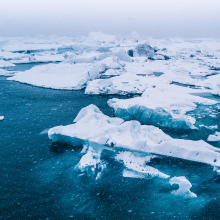intergovernmental panel on climate change
SINCE MOST OF AMERICA seems to wake up most days looking for something to be outraged by, I try to keep my indignation in check. Still, the news that members of North America’s Hymn Society had chosen “Holy, Holy, Holy!” as the greatest hymn of all time—beating “Amazing Grace” in an early round by a 70-30 margin—struck me as an affront to all that is good and, well, holy. Sure, who doesn’t like singing a resonant Anglican ode to the tenets of trinitarian theology? But up against “Amazing Grace”? C’mon, now.
I’m actually a little used to this kind of hymnal-based resentment, because some years ago denominations began actually removing one of my great favorites, “Once to Every Man and Nation.” As the head of the Episcopalian hymnal committee put it, James Russell Lowell’s great poem, written at the height of the crisis over slavery, was unorthodox because “its basic premise denies the fact that God repeatedly forgives his people and gives them more than one opportunity to amend their lives.”
“The reason I speak to them in parables is that ‘seeing they do not perceive, and hearing they do not listen, nor do they understand.’ With them indeed is fulfilled the prophecy of Isaiah that says: ‘You will indeed listen, but never understand, and you will indeed look, but never perceive. For this people’s heart has grown dull, and their ears are hard of hearing, and they have shut their eyes” (Matthew 13:11-15)
Humans shut their eyes to truth.
This week, the Intergovernmental Panel on Climate Change released the final installment of its three-part synthesis report on climate change. According to Rajendra Pachauri, the chairperson of the IPCC, this report is the “strongest, most robust, and most comprehensive analysis” to come out of the IPCC, which has been tracking climate change since 1988. Yet, there are still some who are hard of hearing.
The data that lies within the report is nothing completely new: climate change is happening, humans are responsible for climate change, and fossil fuels are severely damaging our levels of CO2. So, what is different about the newest installment of the IPCC report?
The emergence of one word: irreversible.

